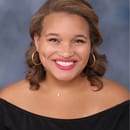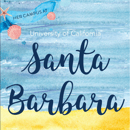Happy Black History Month! Every year, I post a screencap from one of my favorite t.v. shows, The Proud Family, on my Instagram to remind my followers that Black History Month is also the shortest month of the year. Between President’s Day and Valentine’s Day, there’s a lot of distractions in these 28 days meant to educate and celebrate Black culture and creation, but I’m still grateful for each one.
This article is something that I have wanted to write since applying to Her Campus in the Fall, and it’s fitting that writing it falls on Black History Month. Throughout my life, I have gotten used to being the “only” in any space I’m in: whether it be the only Black family growing up in a white neighborhood, the only Black student in a history class learning about slavery, or now, one of the only Black students in both of my majors at UCSB (CCS Writing and Literature and BFA Acting). Adjusting to pandemic life has been rough on everyone, but when you add in the exorbitant levels of trauma Black students have experienced in the last year, the idea of “self-care” seems almost laughable at times especially since there is an even larger stigma around the topic of mental health in communities of color. I wanted to share some of the ways I have found support as a Black student at UCSB because although it’s easy to feel like it, I know that I am not alone.
First, I want to touch on the therapy resources available to us as UCSB students. I’m sure most people are familiar with CAPS. If they refer you out for long term counseling, you’ll most likely be referred to Acacia Isla Vista; I’ve been seeing someone there since Spring 2020. If you have student insurance, all you have to cover is a co-pay there, which is temporarily waived due to COVID! Now is probably the most affordable time to reach out and begin seeking therapy if that was a factor keeping you from it, and I can’t recommend taking advantage of that enough. You can also reach out to the social workers at Student Health with your questions. They have a lot of grants available to students to help cover health expenses as well that you won’t know about if you don’t ask.
I’m here at UCSB as a Promise Scholar, so I have direct access to the most helpful and caring mentor, Holy Roose, who you might know if you’ve taken INT courses. While not everyone has a Holly, there are many people here just to help us that you should know about including CARE advocates, the Disabled Students Program, CalFresh advocates, social workers, the basic needs center, and the financial crisis team. AS also has applications open for COVID-19 emergency grants, which I received last year to help pay for jaw surgery that I had in the summer. The saying “Gaucho back” may be cringey, but it’s true; professors are accommodating, no one lets you go hungry, and you do not have to suffer in silence.
If you don’t already have GroupMe, I recommend downloading it as soon as you finish reading this. There’s groups for almost every academic class offered here to ask questions and study together, and I’m also in the UCSB Black Students group and UCSB BSU (Black Student Union) group. I’m always looking to make more friends that look like me, and these groups are the fastest way to stay connected during the pandemic. People share memes, events they’re hosting, and even seek research subjects where you can be compensated for participating in their study. I recently agreed to be interviewed about my high school experience as a Black student, and ended up learning that the person interviewing me lives in my building in IV! Now I have a friend that I wouldn’t have ever met if I didn’t respond to that message. Please, get as involved as you can. I promise you won’t regret it.
Remember that it is not your job to educate or coddle the white people around you. It is up to you whether you want to engage in the [performative] activism on your timeline or the conversations your peers are having. I know how both rewarding and exhausting it can be, so be fearless in your power to say no. The two most important things your body needs are sleep and water; when life gets overwhelming, focus on fulfilling those two needs. Fill in the rest of your day with things that bring you joy— friends, your comfort show or movie, coloring, overpriced ice coffee— whatever makes your body, mind and spirit feel at ease.
It’s hard to not feel alone when there are so few Black and brown students at a predominately white institution. It’s hard to advocate for ourselves and our mental and physical health when we have been raised around various cultural stigmas, and the fear of authorities is ingrained in us for no reason other than the color of our skin. Black History Month may only be 28 days, but we deserve to have happiness and health all 365.



